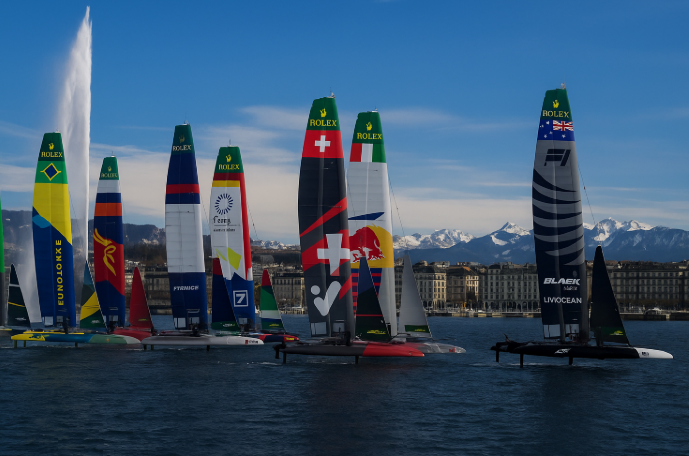Rolex Switzerland SailGP Grand Prix on Lake Geneva delivered a dramatic mix of tactics, light winds, and a breakthrough victory for Germany in its first final and first win. Switzerland’s hosted the SailGP for the first time and the local crowd got more than just a glimpse of world-class foiling — they saw history.
Being a freshwater venue, the conditions were challenging as the teams were used to coastal and sea venues. Light winds forced teams to rethink tactics. The unpredictability of the winds and shifting conditions meant that each start and positioning made a difference. Sail GP commentators stated “the difference between success and failure was razor thin,”.
The F50 catamarans require a certain wind threshold (~28 km/h) to consistently stay foiling. In Geneva, wind speeds were well below that threshold, forcing boats to operate more in displacement mode (i.e. hulls in the water) during parts of the race.
Day 1 and 2, New Zealand and Spain showed their strengths with wins in the earlier races. Spain, led by Diego Botin and having come from wins in San Francisco (one of the toughest conditions) and New York was ready. The Black Foils, with Peter Burling at the helm (as one of the top teams in the overall rankings) came out strong by foiling early and securing the first win.
By the Finals, Switzerland, with Seb Schneiter and one of the league’s youngest
The Swiss team, strengthened by their home territory advantage was supported in strength by the local fans but was penalized with an early start which cost them the win. Germany’s win was due to precision and perfect execution from start to finish. This is the area that plagued the teams, the fickle weather and conditions rendered strategic tactics. It was a first final as well as first win for Germany, which depicted the diverse strengths and parity across all of the teams.
Next up, the runup before the finals takes place in Cadiz on the Spanish team’s home soil.
